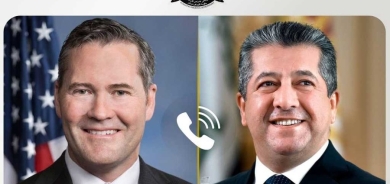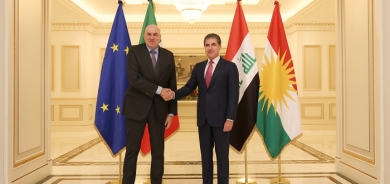Jack A. Goldstone to Gulan Magazine: Science and technology change the global power balance in two ways, first, by increasing productivity, second, by enabling societies
February 23, 2012
Exclusive Interviews

Jack A. Goldstone is the Virginia E. and John T. Hazel Professor of Public Policy and a Senior Fellow at the Mercatus Center at George Mason University. His primary research interests are economic growth in the global economy, the effects of population change on economic growth, the causes and outcomes of revolutions, and improving governance in developing nations.Dr. Goldstone’s is known for work in several disciplines, mainly political sociology and world history, and he has served as consultant and provided briefings for the US Congress, the Department of State, USAID, National Security Council, several European ministries, and the United Nations on issues in conflict, democracy assistance, state-building, and social change.We contacted the Professor Goldstone to discuss the term “Authority” and the changes this term witnessed in particular after the technological progress, and the Professor Goldstone replied to our question in an exclusive interview to Gulan Magazine as the following:* The term authority has undergone some changes with the beginning of 21st century. That means if authority meant power in the beginning of 20th century, but since the WII the term authority mostly means wealth. So, according to your opinion; why does authority refer to knowledge in the current era?
- Today, more than ever before in history, knowledge is the key to both power and wealth. Specialized knowledge provides prestige and market power in the professions, science, and even in many areas of governing. Today "authorities" are not just those with power, or wealth, but those who "know better" than others how to solve a problem.
* The conflict and competition for authority of controlling the world is to do so through knowledge. That means how as many as knowledge is invented to provide welfare for humanity, how to achieve cheap products and etc. So, in your view; to what extend science and technology have been able to change the balance of power in the world?
- Science and technology change the global power balance in two ways. First, by increasing productivity, science and technology allow nations to increase their wealth. Second, by enabling societies to build more accurate and destructive weapons. Free and democratic societies do a much better job turning science and technology into wealth by using diverse networks and markets to select the most productive innovations. But authoritarian societies can often do a very good job of acquiring more advanced weaponry, either by purchase or imitation from more advanced economies and free nations. This is how a relatively poor, authoritarian country such as North Korea can become a dangerous nation; not because of its wealth but because it has gained a nuclear capacity.
* Many huge and famous world companies are failing and computer technology center is about to transfer from Europe to very eastern Japan. So, to what extend these changes are factors for the exchange of authority around the world?
- As knowledge and manufacturing spread, authority spreads as well; and the gap between the richest and most powerful countries and other up-and-coming countries is narrowing. As China, India, Brazil, and Turkey increase their command of science and technology, for economic production and advance weaponry, they will be able to challenge what had been a near-complete domination of the world by western authority.
* The national companies are getting changed into multinational companies so as to survive themselves from bankruptcy and to challenge broader knowledge. So the question in here is; if power of knowledge has been replaced with traditional power?
- The location of power is changing -- where once power was concentrated in organizations (national companies and national states) it is now concentrated in networks that control the flow of knowledge and capital. These networks have nodes or centers in multiple countries, and move money and knowledge and goods and services around the world. Multi-national companies are increasingly becoming just multi-national networks with various operations scattered all over the world and linked by communications and travel to distribution and command centers in major cities. As organizations like NATO, the EU, the WTO, the UN, and other supranational organizations gain the ability to operate in diverse regions and move knowledge where it is needed, they gain authority at the expense of traditional states.
* In terms with information sharing technology, we consider the current era as the fastest period of information transfer and due to the internet it is impossible to take control of any information. So, to what extend there is the fear that some people might exploit it and use the information for producing bombs and use it for terroristic actions. So, how the world can take control of this side effect?
- Much knowledge can be used for good or ill. The best way to assure knowledge is used for good is to have states, multi-national corporations, and supra-national authorities speak out and defend basic human rights everywhere in the world.
* If the world economy is run by knowledge, then there should be a global government also. So, to what extend you think that the world may become a big democratic government?
- This will happen some day, but probably not in our lifetimes. A requirement for democratic government is trust -- trust that the government will obey the law, and trust that other voters have roughly the same goals and values so that you will abide by their votes. We have not yet established anywhere near that level of trust among peoples of different nations.
* Last Question: There are still identity problems in the world and there are many nations and groups who are seeking for their identity. So, according to your opinion; how these nations can find their identity in the globalized world?
- They can find their identity in their distinct traditions and history and culture. But the challenge for the world today is how to preserve and respect cultural diversity while achieving harmony on such issues as human rights, economic freedom, and democratic and accountable government. This problem will take a long time to solve; meanwhile it is likely that identity groups will perceive each other as threats and engage in violence to enhance their own security.















